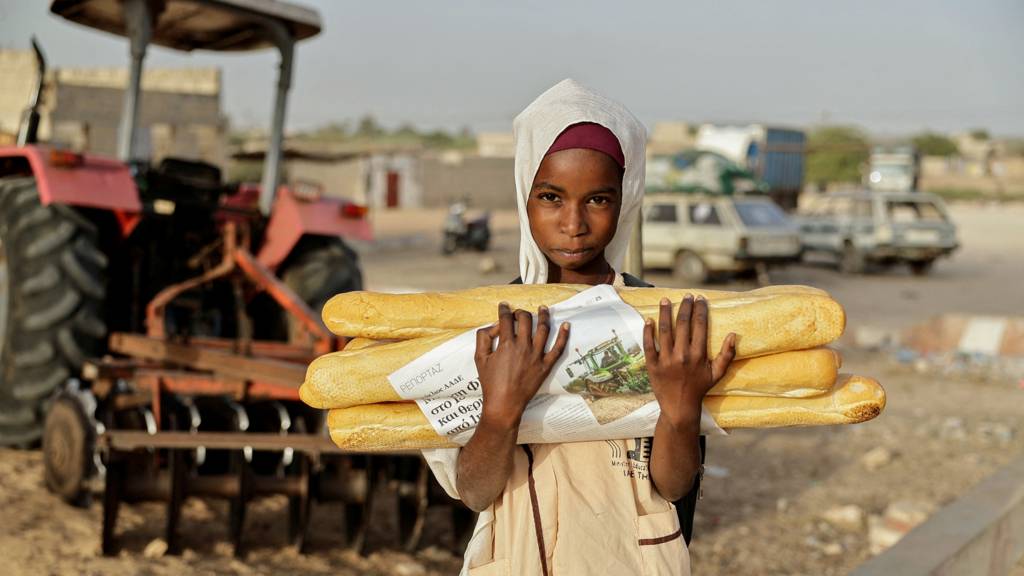
Live
Africa Live this week: 25-31 March 2024
viewing this page
Bringing you the latest news from around Africa at bbc.com/africalive. This is an automated feed overnight and at the weekend.

Bringing you the latest news from around Africa at bbc.com/africalive. This is an automated feed overnight and at the weekend.
Live Reporting
All times stated are UK
Get involved
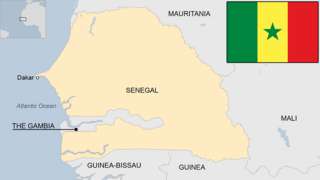
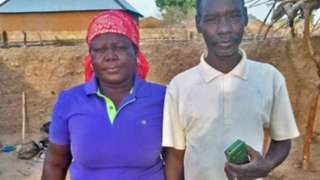
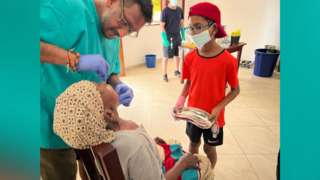

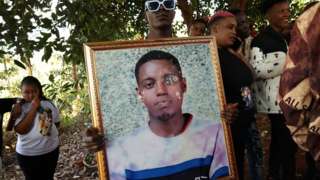
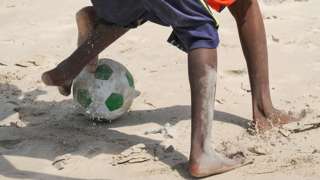

AFPCopyright: AFP Millions of people have been forced from their home by the near-year-long conflictImage caption: Millions of people have been forced from their home by the near-year-long conflict - Famine looms in Sudan as civil war survivors tell of killings and rapes

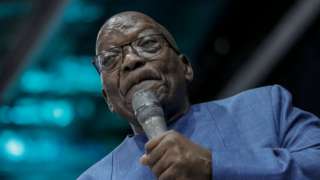
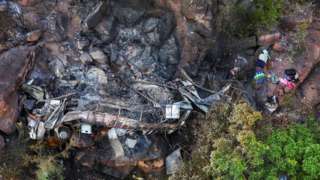
Video caption: South Africa: Forensics inspect scene of deadly bus crashSouth Africa: Forensics inspect scene of deadly bus crash 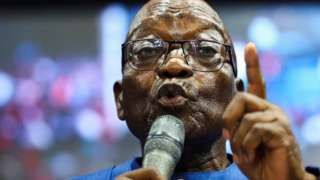

ReutersCopyright: Reuters 
AFPCopyright: AFP The kidnapping in Kuriga left an empty school behindImage caption: The kidnapping in Kuriga left an empty school behind - Schoolboy recounts daring escape from bandits

ReutersCopyright: Reuters Ex-President Zuma has been campaigning for the MK partyImage caption: Ex-President Zuma has been campaigning for the MK party - When is the poll and what is at stake for the ANC?
- Jacob Zuma's MK - the political wildcard in South Africa's election
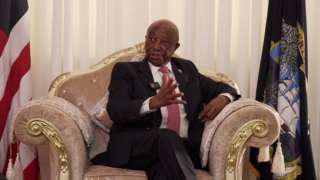
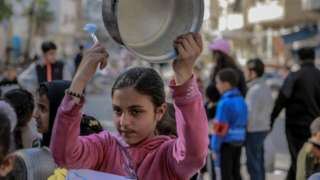
Latest PostSenegal country profile
Provides an overview of Senegal, including key dates and facts about this west African country.
Read moreThis page is now closed
For the latest updates, go to bbc.com/africalive
Parents of Chibok girls heartbroken - again
By Adaobi Tricia Nwaubani
Letter from Africa series, Maiduguri
Some of their rescued daughters have chosen to stay married to their abductors, with government approval.
Read moreDentist treats 200 patients a day in Mozambique
By Lewis Adams
BBC News, Northamptonshire
Dr Vivak Shah, from Northamptonshire, was joined by his children Arjun, 12, and Aryan, 10.
Read more'I was mutilated at 16 but I won't let it define me'
Valerie Lolomari is determined to help other victims of FGM after spending years living in shame.
Read moreWhy funeral of a TikTok star stunned Kenyans
By Wycliffe Muia
BBC News, Nairobi
Villagers complain that some of the fans of the late Brian Chira were not respectful at the burial.
Read moreThe football pitch that doubles as an execution ground
By Naima Said Salah
Mogadishu
Goalposts used by children on a beach in Somalia's capital are posts set up for firing squad executions.
Read moreFood aid used as weapon of war in Sudan - UK MPs
James Landale
Diplomatic correspondent, BBC News
British MPs have warned that food aid is being used as a weapon of war in Sudan’s bitter civil conflict.
Vicky Ford, the chair of parliament's all-party group on Sudan, said there was evidence both warring sides - the Sudanese army and the Rapid Support Forces - were restricting humanitarian aid.
She was speaking after new research suggested more than 100 villages in western Sudan had been burned.
The war in Sudan has been raging for almost year and the fighting is brutal.
The Centre for Information Resilience – a government-funded research group – says that 108 villages and settlements in western Sudan have been fully or partially destroyed by fire since last April.
The UK Foreign Office says what’s happening bears all the hallmarks of ethnic cleansing as black Africans are targeted by Arab militias.
There are warnings of famine with more than 20 million people needing food aid.
Ms Ford also said sexual violence against women was widespread, with evidence that some girls were deliberately disfiguring themselves to avoid rape.
The all-party group has put out a statement calling for the international community to give more aid.
It’s also urging some countries – including the United Arab Emirates – to stop giving arms to the warring parties.
Read more on the conflict:
KFC Nigeria sorry after disabled diner refused service
By Gloria Aradi
BBC News
Wheelchair user says he felt less than human after he was told to leave the branch at Lagos airport.
Read moreS Africa ex-President Zuma involved in car crash
He was unhurt after a drunk driver collided with his armoured vehicle, police say.
Read moreBus plunges off South Africa bridge, killing 45
By Phelan Chatterjee
BBC News
An eight-year-old girl is the only survivor after a bus carrying Easter pilgrims plunges into a ravine.
Read moreWatch: Scene of deadly South Africa bus crash
Video content
The only survivor is an eight-year-old girl that has been taken to hospital with serious injuries.
Jacob Zuma barred from South Africa election
South Africa's ex-president has backed a new party seeking to take on the governing ANC.
Read moreDozens killed in South Africa bus crash
Forty-five people have been killed in South Africa after the bus they were travelling in crashed, the authorities say.
One eight-year-old child is reported to have survived.
The bus crashed through a barrier and plunged into a ravine before catching fire in Limpopo province in the north-east of the country, local media are saying.
There are reports that the passengers had been travelling from Botswana on a pilgrimage to attend an Easter service in South Africa.
Transport Minister Sindisiwe Chikunga went to scene of the accident.
"I am sending my heartfelt condolences to the families affected by the tragic bus crash... Our thoughts and prayers are with you during this difficult time. We continue to urge responsible driving at all times with heightened alertness as more people are on our roads this Easter weekend,” she said.
Scroll down for this week's stories
We're back on Tuesday
That's all from the BBC Africa Live team for this week - we're back after the break on Tuesday.
In the meantime you can listen to the our Focus on Africa podcast here and our Africa daily podcast here.
A reminder of Thursday's wise words:
Click here to send us your African proverbs.
And we leave you with this picture of the Safari Rally currently taking place in Kenya:
A fortnight of waiting and praying
Janet Ball
BBC Africa Daily podcast
It's every parent’s nightmare.
Dahiru Abdulahi’s 16 year-old daughter, and 20 other children from his extended family, went to school earlier this month, as they did every day, but then they didn’t come home.
Mr Abdulahi was working at the school in Kuriga in the north-west of Nigeria when armed men arrived on motorbikes, surrounded the children at assembly time and took them and their teacher away.
“A bandit ran after my daughter, she beat him with her elbow, but another bandit grabbed her hijab and took her to his motorbike," he told the BBC's Africa Daily podcast.
The teacher, Abubakar Issa, died in captivity. It’s reported he was shot in the leg.
Mr Abdulahi described the panic which followed the abduction of more than 130 children:
What followed was more than a fortnight of waiting and praying.
Nigerian President Bola Tinubu took a tough line, saying there would be no ransom paid despite the kidnappers calling and demanding $690,000 (£548,000).
The government is desperate to stamp out kidnap-for-ransom, which has become lucrative for the so-called bandits who plague the country.
This month alone, there have been six mass abductions in the north of the country – with many including children.
But Mr Abdulahi and his community have been lucky.
Unlike after many kidnappings, on Sunday the parents finally had cause for celebration: video footage was released of all 137 children being bussed to safety and meeting senior government officials.
After seeing a photograph of his daughter shaking hands with the state governor on social media he celebrated that she was at least safe.
He also said that she will continue to go to school because she wants to become a doctor. "She will not be discouraged. I will assist her and guide her to further education," he said.
You can listen to the Africa Daily episode here.
Read more on the kidnapping:
South Africa's ex-President Zuma barred from election
South Africa's former President Jacob Zuma has been barred from running in May's general election, the country's electoral commission (IEC) has said.
Mr Zuma's backing of the new uMkhonto weSizwe (MK) party has been seen as a possible threat to the governing African National Congress (ANC).
The former president, who served from 2009 to 2018, has been suspended by the ANC.
His was the first name on the MK's candidate list, but the IEC received objections to him potentially becoming a member of the National Assembly.
"In the case of former President Zuma, yes, we did receive an objection, which has been upheld," IEC chairperson Mosotho Moepya is quoted by News24 as telling a press conference.
Mr Zuma received a 15-month prison sentence in 2021 for contempt of court and the constitution says anyone who has had a prison sentence of longer than 12 months is not eligible to run for election.
The IEC said that the ruling did not prevent the MK party from taking part in the 29 May poll, News24 reports.
For the first time since the start of the democratic era in 1994, the ANC's vote share could fall below 50%, according to several opinion polls. The MK party is seen as popular in Mr Zuma's home region of KwaZulu-Natal.
Read more on South Africa's election:
Power blackout hits much of Ethiopia
Kalkidan Yibeltal
BBC News, Addis Ababa
Ethiopia’s state-run power company has said large portions of the country have been hit by an electricity blackout due to “issues in our system”.
Ethiopian Electric Power did not disclose exactly what those issues were but said in a post on its Facebook page that it was investigating what prompted the outage.
All parts of the country, except Bahir Dar, a city in the north-west, and its surrounding area, have experienced the power problem which began around 15:40 local time (12:40 GMT).
In a separate statement, the company said it had begun restoring power in the capital, Addis Ababa, and some other parts of the country hours after the problem occurred.
Don't ask Liberia's president for a job - he's fed up
By Natasha Booty & Janet Ball
BBC News
Joseph Boakai tells the BBC he is trying to change the mindset of those who think government is a way to get rich.
Read moreWhat is famine and why are Gaza and Sudan at risk?
By Lauren Potts
BBC News
Conflict means millions of people in Gaza and Sudan are severely struggling to access food.
Read more